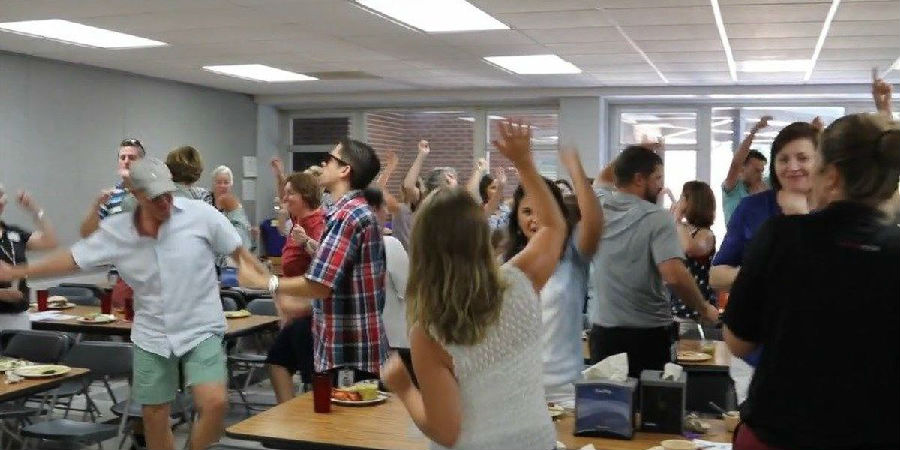(单词翻译:单击)
听力文本
Few US College Graduates Feel Their Schools Fully Investigate Discrimination
In the United States, only about one-fourth of college graduates strongly believe their former schools would investigate claims of discrimination as best they can.
That is a finding from an opinion study by Gallup, an American company known for its public opinion research. The study was published in May.
Gallup questioned more than 1,600 graduates of over 700 colleges and universities across the country. Each person completed a four-year study program between 2010 and 2019.
The graduates were asked to base their answer on a five-point rating system, with five meaning "strongly agree" and one being "strongly disagree."
The survey found that just 27 percent of those questioned "strongly agreed" that their school would fully investigate claims of discrimination.
John Clark is an education expert with Gallup. He says it is important to note which graduates were more likely to believe school officials would take necessary action against discrimination.
Nearly 30 percent of white graduates strongly agreed that their school would fully investigate claims of discrimination. Yet only 19 percent of Black graduates, 21 percent of Asians and 23 percent of Hispanic graduates gave the same answer.
Gallup did not say if its researchers questioned graduates belonging to other ethnic or racial groups.
Clark suggests the differences are likely linked to the small numbers of Blacks, Asians and Hispanics in college faculty and administration positions. He noted that over the past 30 years, the U.S. college student population has grown more and more diverse. But many professors and school administrators are white, and largely male.
If students do not see people who share their life experiences in such positions, they are less likely to believe their school will take their issues seriously, Clark said.
Raechele Pope says she is not at all surprised by the study's findings. Pope is a professor of higher education studies at the University of Buffalo in New York. She is also the university's chief diversity officer.
She notes that as far back as the 1970s, when she went to college, students were calling for more diverse faculty positions. But little has changed, even as colleges and universities have increased efforts to diversify the student body.

One study published in January found that the number of full-time black faculty at Pennsylvania State University actually fell by about two percent over a 15-year period.
Pope argues the root of the problem is that many Americans do not believe discrimination is a real problem. Yet a growing body of research provides evidence of racial inequality in many areas of American society, including policing, education and finance.
"Colleges and universities are microcosms of the United States," Pope said. "It's a microcosm of the big problems that we face. And so, if you don't deal with racism, with anti-black … structures in your system … in the United States, then you're not dealing with them in the campuses any differently."
Pope said another issue is that higher education, in general, is slow to change, no matter what issue it is facing.
Michigan State University and Ohio State University, for example, have only recently had to answer for years-old claims of sexual wrongdoing on their campuses.
Shane Windemeyer is executive director of Campus Pride, a group that works in support of LGBTQ students. LGBTQ is short for lesbian, gay, bisexual, transgender and queer or questioning.
Windemeyer agrees that the speed at which colleges and universities deal with these issues is a problem. He told VOA "Often times, colleges … play the waiting game with students, where they know that they'll be gone in four years or five years. And so it's like …. 'Oh, well we lost that student, so what are we supposed to do?' And colleges need to be held responsible on their own to …create a safer, more inclusive campus community," he said.
Windemeyer added that the issue is not limited to just racial discrimination. After all, only 24 percent of LGBTQ students strongly agreed their schools would fully investigate discrimination claims. That compares to 28 percent of non-LGBTQ students.
Windemeyer noted a rising number of cases of students and faculty members claiming academic freedom and freedom of speech in defense of what he calls hateful statements. But he argues this not about a difference in opinions or beliefs. It is about making all students feel welcome on campus.
Windemeyer, Pope and Clark agree U.S. colleges and universities must do more to gain the trust of their students.
They say this starts with re-examining and strengthening discrimination policies, especially those related to employment and the admissions process. And it may lead to more schools making classes on discrimination and diversity a requirement for students, as the California State University system decided to do in July.
I'm Pete Musto.
重点解析
重点讲解:
1. known for 以……而著名;因……出名;
He was known for his poor grammar and punctuation.
他不通语法和乱用标点是出了名的。
2. take action 采取行动;行动起来;
We had to take action to protect the proprietary technology.
我们必须采取措施保护专利技术。
3. in general 通常;大体上;
I disagree with drug laws in general.
总的来说,我反对药品法。
4. lead to 导致;引起;
A lack of prudence may lead to financial problems.
不够谨慎可能会导致财政上出现问题。
参考译文
美国大学毕业生感到学校未能对歧视行为开展全面调查
在美国,只有大约四分之一的大学毕业生坚信,他们以前的学校会竭尽所能对有关歧视的指控展开调查。
以公众舆论研究闻名的美国盖洛普公司,进行的一项民意调查得出了这个发现。该研究于5月发表。
盖洛普公司调查了全美700多所大学的1600多名毕业生,这些人在2010年至2019年间完成了为期四年的学习。
研究人员要求这些毕业生根据五分制进行评分,其中五分代表“强烈同意”,一分表示“强烈反对”。
调查发现,只有27%的受访者“强烈同意”,他们的学校会对有关歧视的指控进行全面调查。
约翰·克拉克是盖洛普公司的教育专家,他表示,重要的是要注意哪些毕业生更可能相信学校官员会针对歧视行为采取必要的行动。
近30%的白人毕业生强烈同意,其学校将全面调查有关歧视的指控。然而,只有19%的黑人毕业生,21%的亚裔毕业生和23%的西班牙裔毕业生给出了相同的回答。
盖洛普公司没有说明,研究人员是否询问了其他族裔或种族的毕业生。
克拉克认为,这些差异很可能与少数黑人、亚洲人和西班牙裔人出任大学教师和行政职位有关。他指出,在过去30年里,美国大学生的数量越来越多样化。但是,许多教授和学校管理者都是白人,而且大部分是男性。
克拉克说,如果学生们看不到出任此类职位的人能分享他们的生活经历,他们就不太可能相信学校会认真对待他们的问题。
拉切勒·波普说,她对这项研究的发现一点也不惊讶。波普是纽约布法罗大学高等教育研究专业的教授,她也是该校的首席多元化官员。
她指出,早在上世纪70年代她上大学时,学生们就呼吁教师职位应更加多元化。但至今几乎没有什么变化,即使高校加大了学生群体多元化的力度。
今年1月发表的一项研究发现,宾夕法尼亚州立大学的全职黑人教师数量,实际在15年内下降了约2%。
波普认为,问题的根源在于许多美国人不相信歧视是一个真正的问题。然而,越来越多的研究为美国社会的许多领域提供了种族不平等的证据,包括治安、教育和金融。
“大学院校是美国的缩影,”波普说,“这是我们面临的重大问题的缩影。因此,如果不解决美国体系中种族主义,不解决反黑人的组织……,那么你在校园里应对它们时就不会有任何不同。”
波普说,另一个问题是,无论面临什么样的问题,高等教育总体上变化缓慢。
例如,密歇根州立大学和俄亥俄州立大学,直到最近才不得不对校园内多年来的性犯罪指控做出回应。
肖恩·温德迈尔是校园之光团体的执行董事,该团体致力于支持同志组织(LGBTQ)学生。同志组织指女同性恋、男同性恋、双性恋、变性者、酷儿或质疑。
温德迈尔也认为,高校处理这些问题的速度确实是个问题。他告诉美国之音:“很多时候,大学与学生玩等待游戏,他们知道学生四、五年后就会离开学校。所以就成了,那个学生走了,我们该怎么办呢?大学需要自己承担责任,创造一个更安全、更具包容性的校园社区。
温德迈尔补充说,该问题不仅限于种族歧视。毕竟,只有24%的同志组织学生强烈同意,他们的学校会对歧视指控进行全面调查。相比之下,非同志组织的学生比例为28%。
温德迈尔指出,越来越多的学生和教师要求学术自由和言论自由,以捍卫他所说的仇恨言论。但是,他认为这与观点或信仰上的差异无关,这是为了让所有学生在校园中感到受欢迎。
温德迈尔、波普和克拉克都认为,美国高校必须采取更多措施来赢得学生的信任。
他们说,这首先要重新审查和加强歧视政策,尤其是与就业和录取过程有关的歧视政策。这可能让更多的学校将歧视和多元化课程作为学生的必修课,加州州立大学于7月份就决定采取这样的做法。
皮特·穆斯托报道。
译文为可可英语翻译,未经授权请勿转载!


